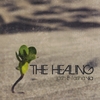(This is a post by my brother-in-law, Andrew Litke, a student at Reformed Theological Seminary in Orlando, Florida. He's much smarter than I am, and when he posted this on our family blog last week, I knew I wanted to share it here. Be blessed. There' s a lot to chew on.)
A LENTEN PRAYER
O Lord and Master of my life!
Take from me the spirit of sloth,
faint-heartedness, lust of power, and idle talk.
But give rather the spirit of chastity,
humility, patience, and love to Thy servent.
Yea, O Lord and King!
Grant me to see my own errors
and not to judge my brother;
For Thou art blessed unto ages of ages. Amen.
Some comments by Alexander Schmemann (Thanks Vias for the X-mas present):
Sloth: A strange laziness and passivity of our entire being which always pushes us "down" rather than "up." It is in fact a deeply rooted cynicism which to every spiritual challenge responds "what for?" and makes our life one tremendous spiritual waste.
Faint-heartedness: being in the state of despondency, the greatest danger of the soul. Despondency is the impossibility for man to see anything good or positive; it is the reduction of everything to negativism and pessimism. It is the suicide of the soul because when man is possessed by it he is absolutely unable to see the light.
Lust of Power: By vitiating the entire attitude toward life and making it meaningless and empty, sloth and despondency forces us to seek compensation in a radically wrong attitude toward other persons. It becomes pure self-satisfaction. It is indeed sloth and despondency directed this time at others; it completes spiritual suicide with spiritual murder.
Idle Talk: The word saves and the word kills; the word inspires and the word poisons. The word is the means of Truth and it is the means of demonic Lie. When deviated from its divine origin and purpose, the word becomes idle. It "enforces" sloth, despondency, and lust of power, and transforms life into hell. It becomes the very power of sin.
Chastity: It is the positive counterpart to sloth. Sloth is, first of all, dissipation, the brokenness of our vision and energy, the inability to see the whole. Its opposite then is precisely wholeness. If we usually mean by chastity the virtue opposed to sexual depravity, it is because the broken character of our existence is nowhere better manifested than in sexual lust – the alienation of the body from the life and control of the spirit. Christ restores wholeness.
Humility: This is the first fruit of wholeness. Humility alone is capable of truth, of seeing and accepting things as they are and therefore of seeing God's majesty and goodness and love in everything. This is why we are told that God gives grace to the humble and resists the proud.
Patience: The "natural" or "fallen" man is impatient. Having but a broken, incomplete, and distorted knowledge of everything, he measures all things by his tastes and his ideas. Being indifferent to everyone except himself, he wants life to be successful right here and now. Patience, however, is truly a divine virtue. God is patient not because He is "indulgent," but because He sees the depth of all that exists, because the inner reality of things, which in our blindness we do not see, is open to Him. The closer we come to God, the more patient we grow and the more we reflect that infinite respect for all beings which is the proper quality of God.
Love: Given by God alone, it is the goal of all spiritual preparation and practice.
To see my own errors and not to judge my brother: Ultimately there is one danger: PRIDE: But when we "see our own errors" and "do not judge our brothers," when, in other terms, chastity, humility, patience, and love are but one in us, then and only then the ultimate enemy – pride – will be destroyed in us.
The body is glorious, the body is holy, so holy that God Himself "became flesh." Salvation and repentance then are not contempt for the body or neglect of it, but restoration of the body to its real function as the expression and the life of spirit, as the temple of the priceless human soul.





0 comments:
Post a Comment